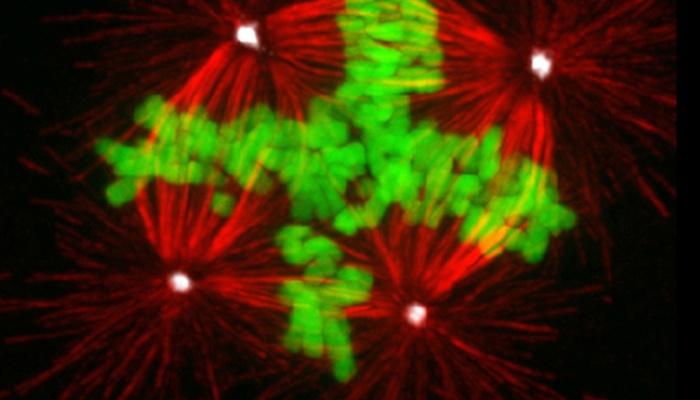$12.5 million Grant from NSF to establish the Polyploidy Integration and Innovation Institute
(Image: Polyploidy is the state of having more than two sets of chromosomes. Image courtesy of NEIL GANEM)
It’s in your heart and liver, in the vegetables you eat, in the rogue cells that cause cancer. Those who live in temperate regions are surrounded by more of it than people who live in the tropics, and without it, humans wouldn’t exist.
It’s called polyploidy, and only within the last few years have biologists begun to recognize its significance across the tree of life.
“It’s one of the most important biological processes that hardly anybody knows about,” said Doug Soltis, a distinguished professor at the Florida Museum of Natural History.
Soltis is one of 18 scientists who have received a combined $12.5 million grant from the National Science Foundation to establish the Polyploidy Integration and Innovation Institute. The grant is part of a broader initiative by the National Science Foundation to bring together scientists from disparate areas of expertise to work on pressing problems in biology.
To read the full article, published by the Florida Museum of Natural History, go to:


